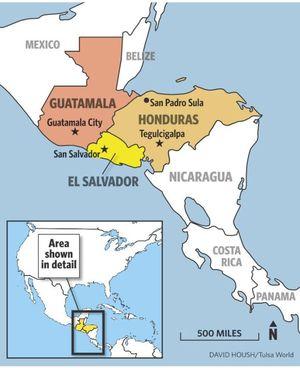WINNING: U.S. Asylum Pact With Honduras Cements Trump Administration’s Regional Strategy
Pact is latest the U.S. has struck with Latin American nations to curtail border crossings
The Trump administration and the government of Honduras signed an agreement allowing the U.S. to send some asylum seekers from third countries to Honduras, capping a string of deals struck with Latin American nations to stem the flow of migrants crossing the border.
The deal, signed on the sidelines of the U.N. General Assembly in New York on Wednesday, is largely identical to an agreement signed last Friday with the government of El Salvador. Both deals give the U.S. permission to send asylum seekers from third countries to Honduras or El Salvador and pledge U.S. support to build up the respective countries’ almost nonexistent asylum capacity. It isn’t clear when either deal will be implemented.
A third accord, signed with Guatemala in July, recently received a go-ahead from Guatemala’s supreme court, and asylum seekers from El Salvador and Honduras could soon begin to be sent there. The deals with El Salvador and Honduras, which sit south of Guatemala, are primarily designed to receive “extracontinental” migrants, including people coming from Cuba, Haiti and several African nations, Latin American officials said.
Critics of these deals say that none of the three countries, known together as the Northern Triangle, has a robust asylum system in place, and all three hold the second-highest safety warning for American citizens from the U.S. government.
Perhaps the most significant agreement the Trump administration has negotiated so far is a June pact struck with Mexico—after Mr. Trump threatened to impose escalating tariffs on Mexican imports—to significantly boost immigration enforcement throughout Mexico. The Mexican government has since deployed more than 25,000 immigration agents across the country, and its crackdown has contributed to a nearly 60% drop in the number of people coming across the U.S. border since May, when it hit a decade high.
“U.S. border and immigration services are already overwhelmed,” said Duncan Wood, director of the Mexico Institute at the Wilson Center, a Washington think tank. “Getting Mexico and the Central American countries to take on more of the burden is a relatively cheap option.”
Read the rest from the WSJ HERE.







Comments are closed.